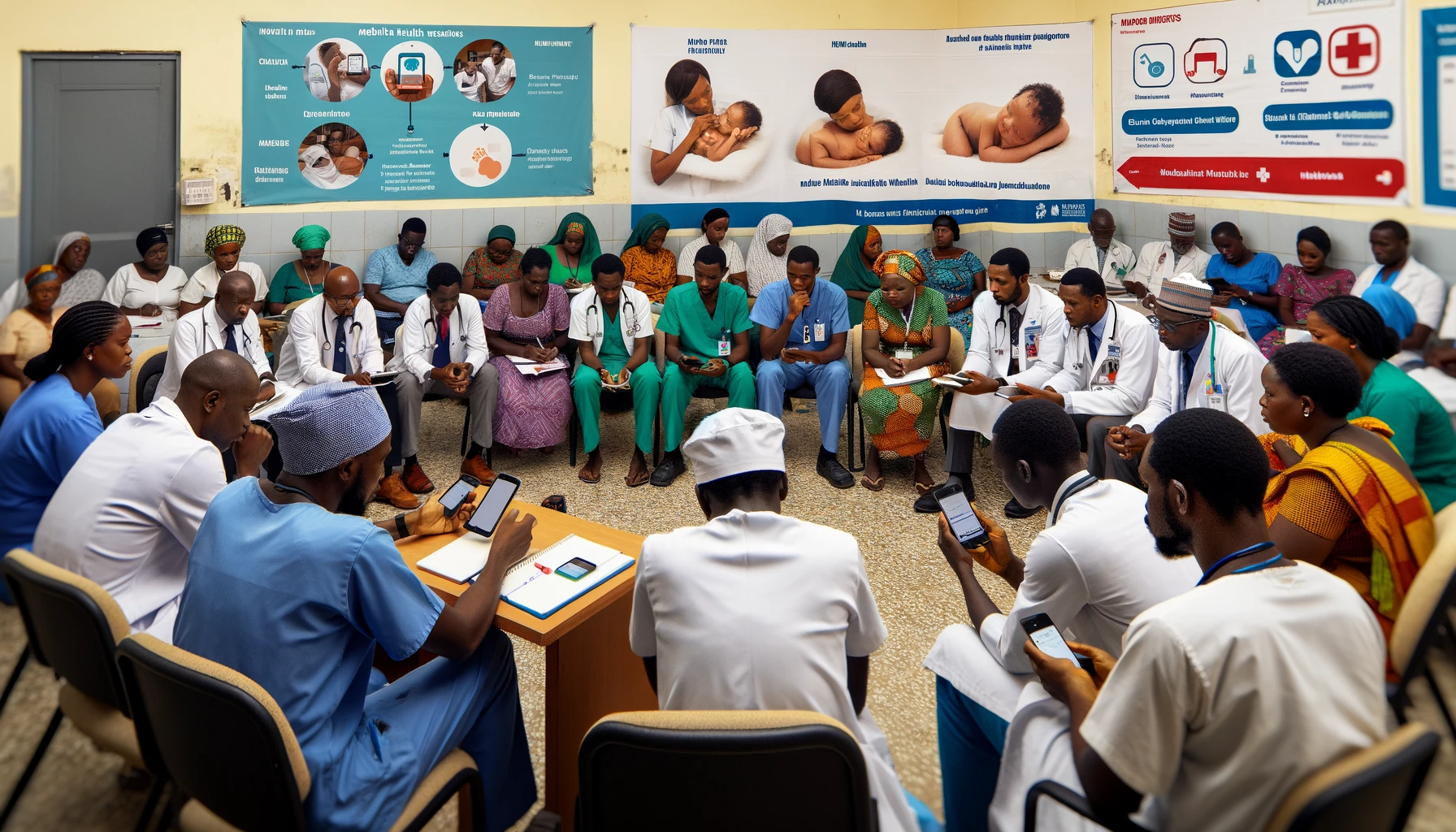Digital Health Revolution: Enhancing Healthcare in Lagos with mHealth Technologies

A study by the Department of Public Health, Norwegian University of Science and Technology (NTNU), Trondheim, Norway, Picterus AS, Trondheim, Norway, and the Department of Pediatrics, Lagos State University Teaching Hospital (LASUTH), Ikeja Lagos, Nigeria investigates the views of healthcare workers (HCWs) on mobile health (mHealth) technologies in Lagos' public health facilities. This qualitative research involved focus group discussions with 26 HCWs, including doctors, nurses, and community health extension workers (CHEWs), uncovering both the advantages and challenges associated with mHealth.
Benefits of mHealth: Improved Communication and Accessibility
HCWs recognized several benefits of mHealth technologies. They found that mHealth could significantly enhance communication between patients and providers, save time, and improve access to health-related information. Online consultations and the ability to reach more people, especially those in remote areas, were seen as major advantages. For example, mHealth can help patients in remote locations contact healthcare providers without the need for long travels, thus overcoming barriers such as distance, transportation issues, and inadequate infrastructure.
One practical example discussed was the Picterus app, which estimates bilirubin levels in newborns using digital images. This app was highlighted for its potential to save time and improve patient outcomes by providing quick and non-invasive screening for neonatal jaundice. Traditionally, diagnosing this condition involves a laboratory-based biochemical assay, which can be time-consuming and invasive. Picterus can provide results within minutes, enabling faster treatment and potentially better outcomes.
Barriers to Adoption: Concerns and Skepticism
Despite these benefits, the stuHealthcare Innovationdy also identified significant barriers to the adoption of mHealth technologies. HCWs expressed concerns about how mHealth might alter their routine practices. They feared that reliance on these technologies could lead to skill degradation and make their jobs less intellectually challenging. Some HCWs worried that mHealth could make them "lazy" or reduce the need for in-depth thinking, as tasks would become more monotonous.
Skepticism and a lack of trust in mHealth technologies were other notable barriers. HCWs emphasized the importance of trust, particularly in diagnostic tools. Negative experiences with inaccurate mHealth applications have fostered distrust among some HCWs, making them reluctant to adopt new technologies. For instance, while the Picterus app is promising, HCWs were concerned about its accuracy and reliability, especially under local conditions different from where the app was initially developed.
Information Overload and Infrastructural Challenges
Information overload was another concern. HCWs noted that while mHealth can provide valuable health information to patients, too much information can lead to anxiety and confusion. There were instances where patients, after searching for health information online, became overly anxious and required emergency psychiatric evaluations. HCWs stressed the need to guide patients in consuming health information to avoid such negative outcomes.
Infrastructural challenges, particularly power and network failures, were seen as significant obstacles. Nigeria faces frequent electricity outages and unreliable internet connectivity, which can hinder the effective use of mHealth technologies. HCWs pointed out that many modern mHealth tools depend on a stable power supply and internet connection, and without these, the utility of such technologies is severely limited.
Addressing Barriers and Leveraging Benefits
The study concludes that to enhance the adoption and utilization of mHealth technologies in Lagos and similar low-resource settings, it is crucial to address these barriers. Solutions should be tailored to meet the specific needs and concerns of HCWs. For instance, ensuring the reliability and accuracy of mHealth tools, providing adequate training, and improving infrastructural support are essential steps. Additionally, involving HCWs in the development and implementation process of mHealth technologies can help build trust and acceptance.
Overall, the study provides valuable insights into how mHealth technologies can be better integrated into healthcare systems in low-resource settings. By addressing the identified barriers and leveraging the perceived benefits, mHealth has the potential to significantly improve healthcare delivery and outcomes in Lagos and beyond.
- FIRST PUBLISHED IN:
- DevdiscourseHealthcare Workers










